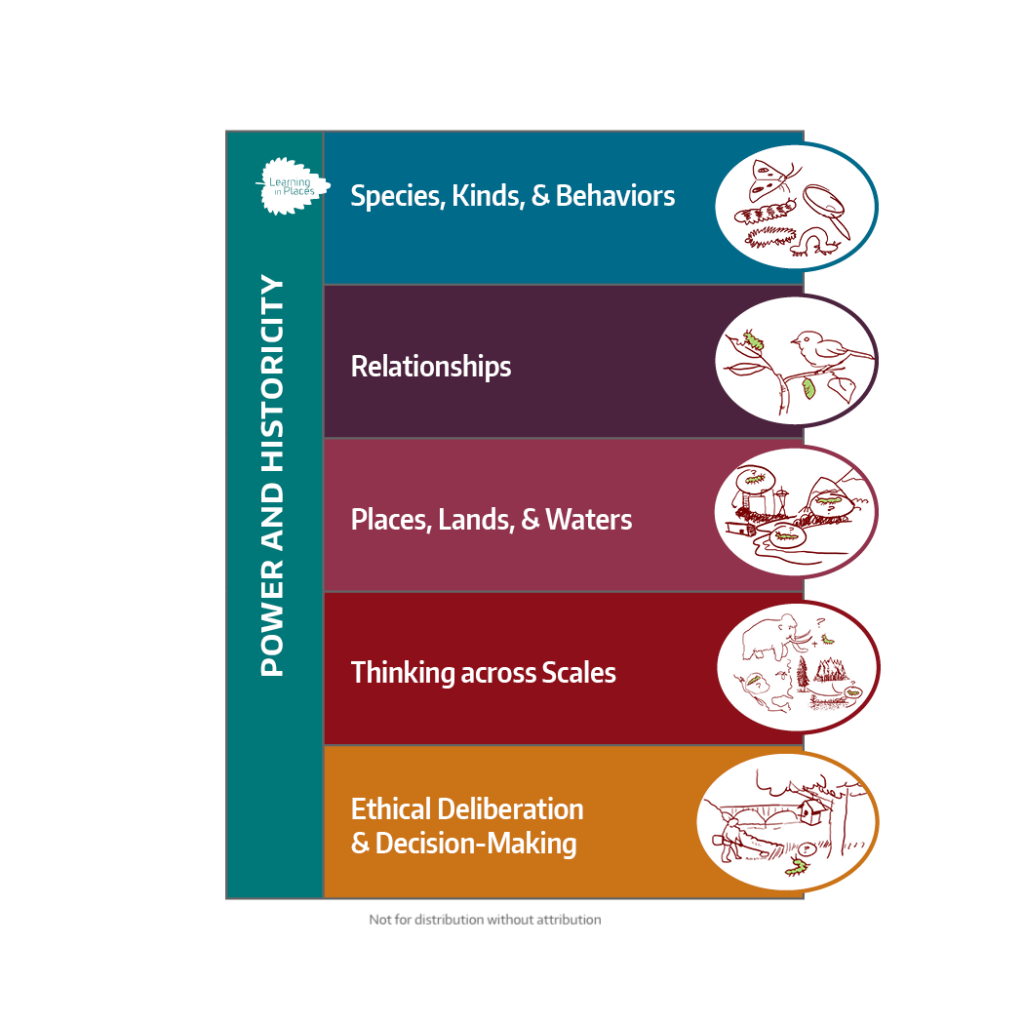Learning Frameworks Overview
All social and ecological systems interact in a complex web of relations across time and place. These are referred to as socio-ecological systems. Understanding complex socio-ecological systems is increasingly important in a world that is socially and ecologically shifting at rapid rates. For example, it is important for people to be able to reason about patterns in the Earth’s climate or diversity of life. Systems reasoning, or being able to understand properties and behaviors of systems, is an academic demand in science learning environments but also increasingly a demand of everyday communal life.
Key Dimensions of Identity and Relations in 5 Dimensions of Reasoning About Complex Socio-Ecological Systems
There are many opportunities to connect learners’ socio-ecological sensemaking with their lived experiences, interests, cultural practices, and the like. Here are some ways to start:

Species, Kinds, and Behaviors; Relationships; Places, Lands and Waters; Thinking across scales; Ethical deliberation and Decision-making. Power and Historicity span all these dimensions.
Suggested Citation
Learning in Places Collaborative. (2022). Framework: Complex Socio-Ecological Systems. Bothell, Seattle, WA & Evanston, IL: Learning in Places.